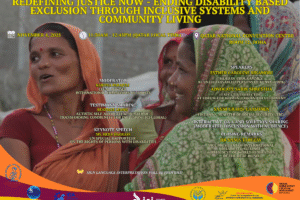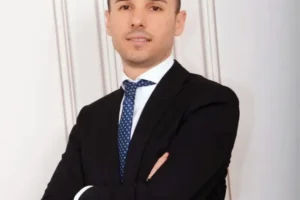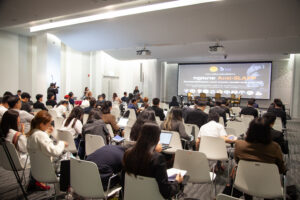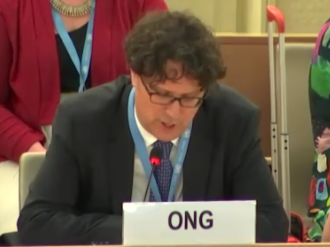
Jun 25, 2019 | Advocacy, Non-legal submissions
Speaking at the UN Human Rights Council in a general debate on the oral update of the High Commissioner for Human Rights, the ICJ addressed issues around “foreign fighters”, criminalisation of solidarity with migrants, and the need for international investigation of violations in the Philippines.
The statement was as follows (check against delivery):
“The International Commission of Jurists (ICJ) thanks the High Commissioner for her oral update.
The ICJ agrees that accountability for crimes under international law committed by foreign fighters is essential; equally, it must be ensured through fair procedures. Where children are concerned, their best interests must be the guiding principle. [To the extent foreign fighters are addressed in relation to counter-terrorism measures, ICJ emphasizes that not only is disregard for human rights in countering terrorism wrong and unlawful in itself, it is also ineffective and indeed itself conducive to terrorism.]
The ICJ is also concerned at the criminalisation of solidarity with migrants in Europe and elsewhere. No one should be penalised for supporting human rights, including those that States fail to uphold. On Thursday, together with the OHCHR and the Geneva Bar Association, ICJ will screen a documentary in Room XIV, the UN Cinema, showing the impact of criminalization of solidarity.
The ICJ supports calls by the High Commissioner and Special Procedures for urgent action by the Human Rights Council on the Philippines. Adoption of a resolution at the current session to establish an independent international investigation is essential.
The huge number of killings in the name of countering drugs is part of a broader pattern of impunity. For instance, at least 39 lawyers have also been killed under the current administration, some of whom were representing victims of human rights violations. A fully independent national commission of inquiry and measures actually to bring perpetrators to justice are also needed to end the pervasive culture of impunity.”
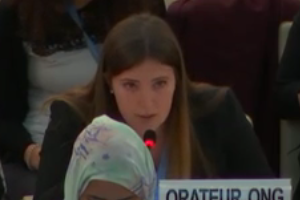
Mar 8, 2019 | Advocacy, Non-legal submissions
The ICJ today addressed the UN Human Rights Council on the need for a time-bound implementation plan, developed with the Office of the High Commissioner for Human Rights, for Sri Lanka to implement its commitments and obligations on transitional justice.
The statement, delivered during an interactive dialogue with the UN High Commissioner for Human Rights on her annual report, read as follows:
“Madame High Commissioner,
The International Commission of Jurists (ICJ) appreciates the efforts undertaken by the OHCHR in advancing transitional justice in Sri Lanka, mentioned in paragraph 69 of your report.
Any progress made by Sri Lanka, especially in relation to the implementation of transitional justice mechanisms under Resolution 30/1, albeit slow and wholly insufficient, has been primarily due to the continued engagement of the Council, OHCHR and international community. Therefore, keeping Sri Lanka on the agenda of the Council is paramount to ensure progress on all remaining commitments set out in Resolution 30/1.
As the Council is poised to provide Sri Lanka with an extension of two years to fulfill its commitments under Resolution 30/1, ICJ considers the expeditious development of a time-bound implementation plan with a deadline for delivery as essential. It is also pertinent that the implementation process is not a mere procedural exercise, but holistic and contextually appropriate.
At present, it appears that women are largely excluded from meaningfully participating in transitional justice processes, despite having been at the forefront in demanding truth and justice. Even mechanisms that have been put in place so far lack a comprehensive gender strategy. It is imperative that problems faced by women during and in the aftermath of the conflict are effectively identified and addressed in order to ensure that they are not left behind as the country seeks to move forward. The OHCHR with its expertise and experience in the field is well-placed to provide the necessary advice and technical assistance, especially in relation to matters that often get ignored or marginalized.
Madam High Commissioner, how would you see OHCHR fulfilling its role in relation to the development of the time-bound implementation plan and the due accomplishment of all remaining commitments made under Resolution 30/1?”
The statement can be downloaded in PDF format here: HRC40-OralStatement-IDwHCitem2-2019
The oral statement follows a joint open letter from NGOs, calling for such a plan, here.
The ICJ earlier submitted a written statement on Sri Lanka, available here.
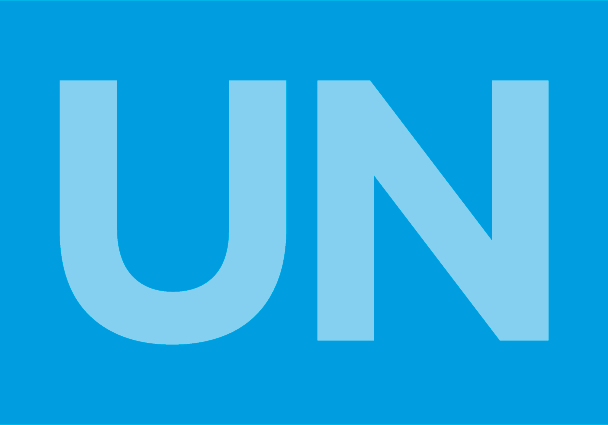
Jul 5, 2018 | Advocacy, Non-legal submissions
The ICJ and other NGOs today highlighted the need for the next UN High Commissioner for Human Rights to continue to maintain a strong voice and independent voice for human rights.
The statement was delivered by International Service for Human Rights (ISHR), on behalf of a number of NGOs, during a general debate at the UN Human Rights Council in Geneva. It read as follows:
“Thank you Mr. President,
We want to highlight key features for the next High Commissioner – the world’s premier human rights defender – whose mandate includes providing technical assistance and capacity building to States, as well as standing up for universal human rights and those who defend them.
The work of the next High Commissioner, and of human rights defenders more broadly, is essential to justice, fairness and dignity for all. Defenders contribute to sustainable and inclusive development. They combat corruption and the misuse of power. They promote good government, transparency and accountability. They seek to ensure that no-one gets left behind.
Despite this, around the world, defenders face mounting attacks and criminalisation for standing up to power, privilege, prejudice and profit. Their work has never been more important, nor more imperiled.
Mr President, it is in this context we say that the next UN High Commissioner needs to be a dedicated human rights defender. They need to be committed to working with and for human rights defenders; consulting and partnering with them, supporting their causes, and speaking out and protecting them when they are threatened or attacked.
The next High Commissioner needs to build strategic alliances with States, civil society, academics and business enterprises with a shared interest in human rights and the rule of law. They need to be fiercely independent, but also collaborative and capable of building influential partnerships and coalitions.
With the promotion, protection and realisation of human rights being linked to the attainment of peace, security and sustainable development, the next High Commissioner needs to be strongly supported by the UN Secretary-General and key UN agencies. Mr President, while the High Commissioner may be the UN’s premier human rights defender, it is time for the entire organisation to put human rights defenders up front.”
International Service for Human Rights
Cairo Institute for Human Rights Studies
Human Rights House Foundation
The International Lesbian, Gay, Bisexual, Trans and Intersex Association (ILGA)
CIVICUS
Peace Brigades International Switzerland
International Federation for Human Rights Leagues (FIDH)
Conectas Direitos Humanos
Asian Forum for Human Rights and Development (FORUM-ASIA)
West African Human Rights Networks
International Commission of Jurists (ICJ)
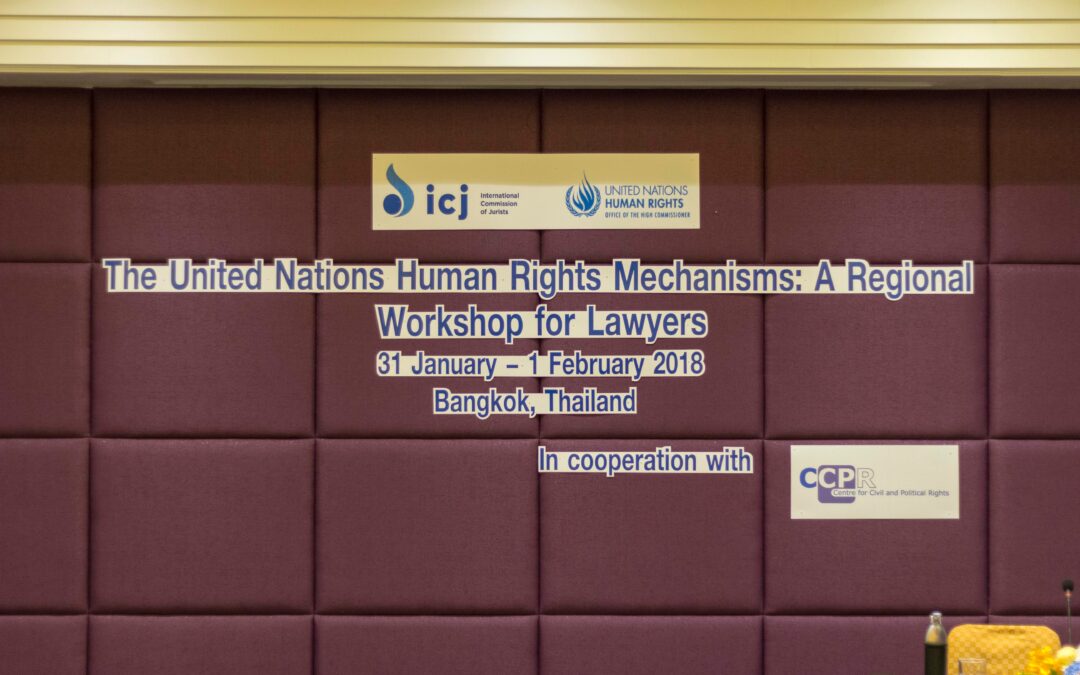
Feb 27, 2018 | Events, News
The ICJ, in collaboration with the UN High Commissioner for Human Rights Regional Office for South-East Asia (OHCHR), and the Centre for Civil and Political Rights, organised a workshop for lawyers from southeast Asia, on engaging with UN human rights mechanisms.
The two-day workshop provided some thirty lawyers from Thailand, Cambodia, Vietnam, and Lao PDR with knowledge, practical skills and expert advice about UN human rights mechanisms, with the participants themselves sharing their own experiences and expertise.
In addition to explaining what the UN mechanisms are and how they work, the workshop discussed how lawyers can use the outputs of UN human rights mechanisms in their professional activities, as well as how to communicate with and participate in UN human rights mechanisms in order to ensure good cooperation and to best serve the interests of their clients.
Sessions were introduced by presentations by the ICJ’s Main Representative to the United Nations in Geneva and OHCHR officials, followed by discussions and practical exercises in which all participants were encouraged to contribute questions and their own observations.
A special discussion of effective engagement of lawyers with Treaty Bodies was led by Professor Yuval Shany, a member of the Human Rights Committee established to interpret and apply the International Covenant on Civil and Political Rights (ICCPR).
The workshop also aimed to encourage the building of relationships and networks between the lawyers from across the region.
The workshop forms part of a broader project of awareness-raising and capacity-building for lawyers from the region, about UN mechanisms.
A similar workshop was held in January 2017 for lawyers from Myanmar.
The project has also published (unofficial) translations of key UN publications into relevant languages, and is hosting lawyers in a mentorship programme in Geneva.
More details are available by contacting UN Representative Matt Pollard (matt.pollard(a)icj.org) or by clicking here: https://www.icj.org/accesstojusticeunmechanisms/
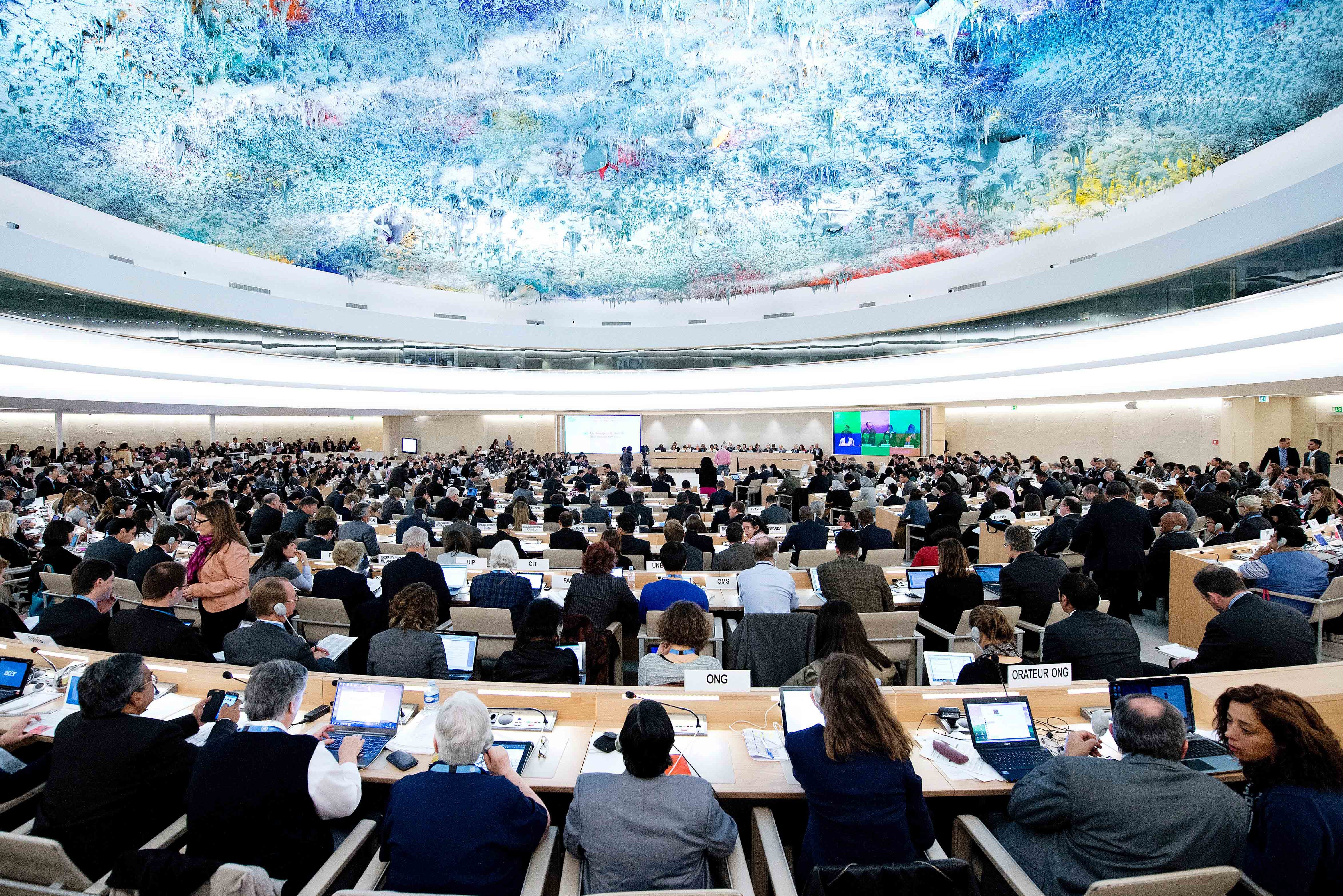
Mar 25, 2015 | Advocacy, Non-legal submissions
La Comisión Colombiana de Juristas afiliada a la Comisión Internacional de Juristas resaltan el valioso aporte de la Oficina del Alto Comisionado durante estos 18 años en Colombia.
25° período de sesiones, Consejo de Derechos Humanos de Naciones Unidas
Tema 2 de la agenda, Informe anual de la Alta Comisionada de las Naciones Unidas para los Derechos Humanos sobre la situación de derechos humanos en Colombia (A/HRC/28/3/Add.3)
Situación de derechos humanos en Colombia
25 de marzo de 2015
Señor Presidente:
La Comisión Colombiana de Juristas afiliada a la Comisión Internacional de Juristas resaltan el valioso aporte de la Oficina del Alto Comisionado durante estos 18 años en Colombia: tiene oficinas en varias regiones y trabaja con comunidades afectadas por el conflicto armado; ha contribuido “a cambios positivos a través de su observación, incidencia, declaraciones públicas, buenos oficios y cooperación técnica”; “[h]a presentado informes periódicos a entidades gubernamentales; ha actuado como garante en conflictos (…); ha interactuado a diario con el Estado y la sociedad civil para encontrar soluciones a los desafíos de derechos humanos (…); y ha contribuido al fortalecimiento de las instituciones” (párrafo 2).
Pese a ciertos avances en derechos humanos, el Informe anual resalta los retos en materia de implementación, falta de voluntad política para aceptar la responsabilidad por violaciones del pasado1, desigualdades económicas y “un acceso asimétrico a los derechos y a los servicios públicos” (párrafo 14). Además, Colombia todavía actúa en contra de sus obligaciones internacionales, como sucede con el derecho a la consulta previa (párrafo 26) o la ampliación de la justicia militar (párrafo 60). Adicionalmente, Colombia no recibe procedimientos especiales desde 2010, aunque cuenta con una invitación permanente y seis mandatos han solicitado visita2.
Después de 18 años invertidos en el país, la Oficina sigue siendo los ojos de la comunidad internacional para derechos humanos, y el acompañante o asesor del Estado en el diseño de sus políticas (párrafos 16, 29, 34, 60).
Según el Informe, el Gobierno y las FARC-EP han logrado avances sin precedentes para poner fin al conflicto armado (párrafo 6). Si “[l]a perspectiva de una salida negociada al conflicto (…) y el crecimiento económico proporcionan una oportunidad única para ampliar la presencia del Estado, hacer frente a la desigualdad y mejorar la situación de los derechos humanos” (párrafo 19), indiscutiblemente la Oficina del Alto Comisionado en Colombia es una inversión clave, y no es de corto plazo.
Gracias señor Presidente.
1 El párrafo 58 dice: “El rechazo de responsabilidades por parte de las fuerzas armadas y de sus superiores políticos perpetúa la impunidad, socava la legitimidad institucional y erosiona el estado de derecho”.
2 Colombia cuenta con una invitación permanente a los procedimientos especiales de la ONU desde el 17 de marzo de 2003. Sin embargo, desde inicios de 2012 no ha aceptado ninguna visita, aunque los mandatos sobre extrema pobreza, personas internamente desplazadas, violencia contra la mujer, afrodescendientes, mercenarios y alimentación han solicitado visitar el país.







